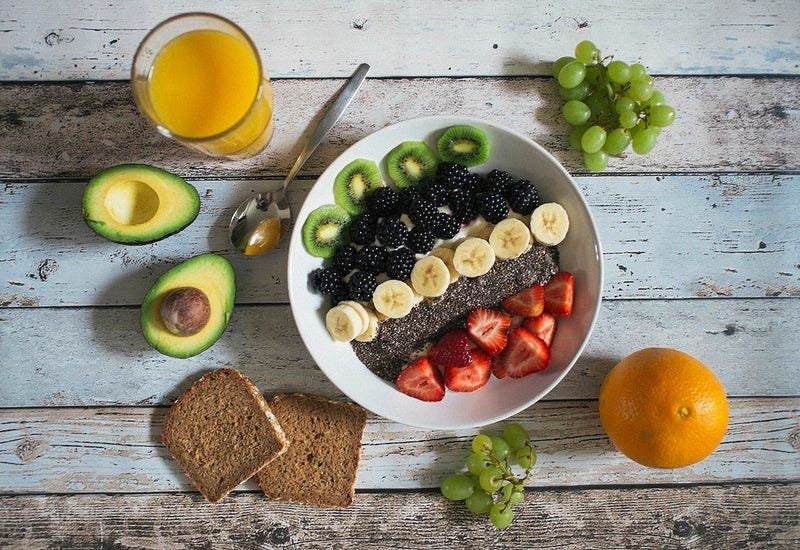Meal planning is a valuable practice that can save time, reduce stress, and improve your overall health and well-being. Whether you’re cooking for yourself, your family, or for a specific dietary need, careful planning can help you make nutritious, enjoyable meals. Here are the key considerations to keep in mind when meal planning:
1. Nutritional Balance
One of the foremost goals of meal planning is to ensure a balanced diet. A well-rounded meal should include:
- Proteins: are essential for muscle repair and growth. Include lean meats, poultry, fish, eggs, beans, lentils, tofu, and nuts.
- Carbohydrates: Provide energy. Opt for whole grains like brown rice, quinoa, whole wheat pasta, and bread.
- Fats: are necessary for brain health and energy. Choose healthy fats from avocados, olive oil, nuts, seeds, and fatty fish.
- Fruits and Vegetables: rich in vitamins, minerals, and fibre. Aim for a variety of colours and types to cover a broad spectrum of nutrients.
- Dairy or dairy products are: important for calcium and vitamin D. Consider milk, cheese, yoghurt, or fortified plant-based alternatives.
2. Dietary Restrictions and Preferences
Consider any nutritional requirements or preferences you may have, such as:
- Allergies: Plan meals that avoid allergens like nuts, dairy, gluten, or shellfish.
- Intolerances: Consider lactose or gluten intolerance and choose suitable alternatives.
- Vegetarian or Vegan Diets: Focus on plant-based proteins and ensure adequate intake of nutrients like iron, vitamin B12, and omega-3 fatty acids.
- Cultural or Religious Practices: Be mindful of foods that align with cultural or religious dietary practices.
3. Budget
Meal planning can help manage food costs by:
- Buying in Bulk: Purchasing staples like grains, legumes, and frozen vegetables in bulk can be more economical.
- Seasonal Produce: Opt for fruits and vegetables that are in season, as they are often cheaper and fresher.
- Sales and Coupons: Plan meals around grocery store sales and use coupons to save money.
4. Time and Convenience
Consider your schedule and the time you can realistically dedicate to cooking:
- Batch Cooking: Prepare large quantities of food at once and store portions for later use.
- Simple Recipes: Choose recipes that fit your time constraints and cooking skills.
- Prep Ahead: Chop vegetables, marinate proteins, or prepare grains in advance to save time during the week.
5. Variety and Enjoyment
To avoid meal fatigue and ensure you enjoy your meals:
- Rotate Recipes: Introduce new recipes regularly to keep meals exciting.
- Incorporate Different Cuisines: Experiment with dishes from various cultures for diversity.
- Seasonal Menus: Adjust your meal plan to include seasonal ingredients, which can also be fresher and more flavorful.
6. Storage and Leftovers
Making effective use of leftovers can cut down on waste and save time.
- Proper Storage: Use airtight containers to store leftovers and maintain freshness.
- Freezing: Freeze meals in portion sizes to extend their shelf life.
- Creative Repurposing: Use leftovers creatively, such as turning roasted vegetables into a hearty soup or yesterday’s chicken into a sandwich filling.
7. Health Goals
Align your meal planning with specific health goals:
- Weight Management: Focus on portion control and balance calorie intake with expenditure.
- Muscle Building: Increase protein intake and ensure sufficient calories.
- Managing Chronic Conditions: Tailor your meals to manage conditions like diabetes, hypertension, or high cholesterol, often involving reduced sugar, salt, and saturated fats.
8. Sustainability
Consider the environmental impact of your food choices:
- Plant-Based Options: Incorporate more plant-based meals, which generally have a lower carbon footprint.
- Local and Organic: Support local farmers and choose organic produce when possible.
- Minimize Waste: Plan to use all purchased ingredients and repurpose leftovers to reduce food waste.
Conclusion
Effective meal planning involves balancing nutrition, budget, time, variety, and personal health goals. By considering these factors, you can create meal plans that are healthy, enjoyable, and sustainable. With a bit of practice and planning, meal preparation can become a seamless part of your routine, leading to better health and more satisfying meals.

